Category: Uncategorised
Hear me on the BBC!
Check out my new BBC Radio 4 series on STATUS…
It was selected for Pick of the Week (from 17 minutes, 30 seconds).
12 REGLAS PARA ENVEJECER CON AUDACIA
- Sigue aprendiendo y experimentando. El dicho de que no se le pueden enseñar trucos nuevos a un perro viejo ni siquiera es cierto para los perros. La novedad te mantiene energizado y comprometido.
- Cultiva relaciones sólidas.
- Encuentra inspiración en modelos a seguir. Piensa en Helen Mirren, David Attenborough o incluso Michelangelo, quien reconstruyó la Basílica de San Pedro en sus 80 años.
- Mantén el cerebro y el cuerpo en forma haciendo ejercicio y comiendo correctamente.
- Canaliza a Marie Kondo. Si algo, ya sea un trabajo, una amistad, etc., ya no te inspira alegría, déjalo. Simplifica para hacer que cada momento cuente.
- Encuentra un propósito que dé sentido a tu vida y te encienda por dentro.
- Sé honesto acerca de tu edad. Mentir le otorga al número un poder que no merece, y refuerza el mito de que ser más joven siempre es mejor. Aceptar tu edad es el primer paso para aprovecharla al máximo.
- Mantente flexible y abierto al cambio, al crecimiento y a la evolución. Como dijo Lao Tzu: “Quien es suave y flexible es discípulo de la vida. Lo duro y rígido se romperá. Lo suave y flexible prevalecerá”.
- Ignora a los agoreros que dicen que el sexo, el amor y el romance pertenecen a los jóvenes: no es así. Haz espacio para los tres, sin importar cuán viejo seas, si es lo que te apetece.
- Si crees que envejecer será malo, lo será. Mantén una actitud positiva y concéntrate en los aspectos positivos del envejecimiento: sentirte más cómodo en tu propia piel; relaciones más profundas; más felicidad, altruismo, creatividad, conocimiento, experiencia.
- Cultiva un sentido del humor. Reírse mejora la salud y la longevidad. Como dijo George Bernard Shaw: “No dejas de reírte cuando envejeces, envejeces cuando dejas de reírte”.
- Piensa en la muerte. No te detengas morbidamente en ella, pero tampoco la evites. La conciencia de que el tiempo es finito le da forma y significado a la vida, y te impulsa a aprovechar al máximo el aquí y el ahora.
In Praise of Slow Food
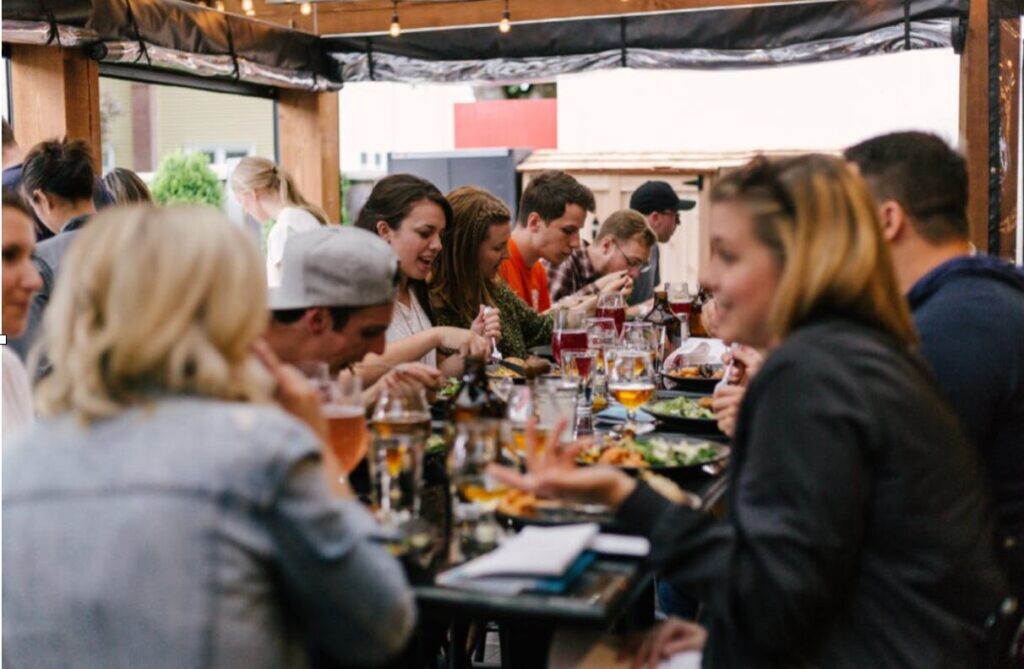
When a French friend of mine first moved to London, she found one local tradition utterly mystifying.
It wasn’t the English penchant for talking about the weather, or for apologising when someone else steps on your toes.
It was that Londoners eat while walking down the street.
“Devouring a Niçoise salad and dodging pedestrians at the same time is not a sign of civilisation,” my friend told me, with Parisian hauteur. “It’s a sign that you need to slow down.”
She has a point. In the modern world, the art of eating has been sacrificed on the altar of speed and efficiency.
Everywhere, industrial farms pump out cheap, low-calibre food. Cooking by microwave then adds insult to injury.
The act of eating has become a race against the clock. One study found that the average meal in the United States lasts just 11 minutes. Breakfast and lunch can be as short as two minutes.
Eating is often incidental, something we do while doing other stuff—driving, doomscrolling, watching Netflix, walking down the street.
Maybe you’re reading this article while dining al desko.
This roadrunner approach to food takes a toll on everything from our health and mood to our relationships and the environment.
The remedy? Take the advice of my French friend and slow down.
We already know that farming at the slower pace of nature is better for the planet.
By the same token, eating less quickly helps digestion and guards against gluttony by giving the stomach time to tell the brain that it is full. It also allows you to savour what you put in your mouth.
Sharing food brings people together, too. It’s no accident that the word companion derives from the Latin for ‘with bread’.
Oscar Wilde noted that breaking bread together can help us bond even with those we find hardest to stomach: “After a good dinner one can forgive anybody, even one’s own relations.”
Having a regular family meal can even improve children’s behaviour and academic performance.
Alice Waters, the legendary American chef, put it best when she said that “only slow food can teach us the things that really matter—care, beauty, concentration, discernment, sensuality, all the best that humans are capable of, but only if we take the time to think about what we’re eating.”
That is why people everywhere are finding ways to build a slower relationship with food.
Look at the renaissance of the farmers’ market. The artisanal boom in everything from beer and bread to cheese and chocolate. The trend for eating local and organic. The rise of vegetable gardens and cooking classes.
The international Slow Food movement, which stands for everything that fast food does not, has grown briskly.
The pandemic supercharged this trend. During the long months of lockdown, many of us found solace in devoting more time and attention to food.
Making a meal by hand, touching the raw materials, feeling your way through a recipe, tasting, adjusting, engaging all the senses, can be a soothing release—especially in dark times.
Preparing and then lingering over dinner was the highlight of the day in my locked-down home.
If you’re like me, your feed is now rammed with images of friends and family pickling vegetables or nursing sourdough starters.
Though the pandemic shone a light on the chasm between haves and have-nots, eating well need not be a luxury for the rich. As Jean Anthelme Brillat-Savarin, the 19th century French gastronome, put it: “The pleasures of the table are for every man, of every land, of every place in history or society.”
Translation: Slow Food does not have to mean a hand-made banquet worthy of a Michelin star.
You can prepare a simple pasta or soup in less time and for less money than it takes to order in pizza or noodles.
Here are some tips for slowing down with food:
Grow a few herbs, like mint, rosemary or thyme, in the garden or on the windowsill. Buy fresh ingredients.
Turn cooking into a moment of restorative me-time. Or make it a communal affair by getting others to help chop, grate, stir, simmer, taste and season.
Eat together round a tech-free table so you can relish the food and let the conversation flow.
But don’t lose heart if you fall short of the Slow Food ideal. Nobody’s perfect. And I mean nobody:
The last time I saw my French friend, she was dashing down the street chewing on a bagel.
(First published in Radiant Life)
Reclaiming the Lost Art of the Stroll
Not long before the pandemic hit, someone reported me to the police.
I wasn’t selling drugs or stealing a car or making too much noise in the middle of the night. I wasn’t even breaking the law.
My only crime was to stroll through an American neighbourhood where walking is not the done thing.
“People here drive everywhere,” the policeman told me. “Walking sets off alarm bells.”
A joke, right? Wrong. In a world in thrall to cars, walking is often seen as deviant behaviour.
I grew up in a Canadian city where you drive rather than walk 10 minutes. My earliest memory of walking to high school was hearing some guy hangin’ out the passenger side of his best friend’s ride trying to holla at me: “Get a car, loser!”
In many cultures, landing your first set of wheels is a rite of passage, a passport to adulthood.
Driving can certainly boost your dating odds. Remember that famous line from Grease: “Tell me more, tell me more, like does he have a car?”
Small wonder the World Health Organisation described walking as a “forgotten art”.
To make matters worse, when we do walk, it’s often with a very modern blend of impatience, distraction and goal-hunting.
We use apps to count our steps. We curse anyone daring to dawdle in our path. We spend much of the time staring down at our smartphones.
All over the world, distracted pedestrians get hurt walking into lamp-posts, fire hydrants or other distracted pedestrians.
Brick Lane, a hipster haven in London, came up with a novel way to curb walk-and-text injuries: wrapping local lampposts in foam padding.
The truth is we need to walk more–for our health and for the sake of the planet. But we also need to walk better.
French has a wonderful word: flânerie. It means strolling without any goal in mind beyond exploring, observing and savouring. It’s the opposite of power walking.
When you channel your inner flâneur (or flâneuse), you notice flowers and trees, clouds in the sky and hills on the horizon, how the light dances on water or across the windows of a building. You hear birdsong and the laughter of strangers. You take pleasure in what others are wearing and doing.
Walking like a flâneur is a balm for the mind and the spirit.
In the 19th century, Soren Kierkegaard, a Danish philosopher, used his daily constitutional to silence the chatter in his head: “I know of no thought so burdensome that one cannot walk away from it.”
Shakespeare was on the same page. In The Tempest, Prospero says: “A turn or two I’ll walk, to still my beating mind.”
Walking can even be a path to enlightenment. Thich Nhat Hanh, a Zen master, argues that a mindful stroll can bring spiritual clarity and heal both the walker and the world.
Ambling also fires up the imagination. That’s why big thinkers, from Aristotle to Virginia Woolf, have hailed the creative power of a good walk.
William Wordsworth composed much of his poetry while wandering lonely as a cloud through the English countryside.
“All truly great thoughts,” said Nietzsche, “are conceived while walking.”
Nikola Tesla agreed. The inventor of the induction motor had his eureka moment while perambulating in Budapest. “The idea came like a flash of lightning,” he later recalled. “In an instant, the truth was revealed.”
A silver lining of the pandemic is that walking made a comeback. With normal life on pause, people everywhere embraced it as a way to exercise, unwind or just get out of the house.
I now take a long stroll every day in my corner of London. My route winds along Victorian streets and through three parks.
And I walk it in full flâneur mode. No rush. No Fitbit. No music. No phone. Just meandering for the sheer joy of it.
The other day, as I sauntered past a pond in the park, a question popped into my head: Has the pandemic finally made flânerie permissible in that neighbourhood where someone dialled 911 after seeing me on foot?
I emailed a local to find out.
“You’d fit right in here now,” came the reply. “I’m looking out my window and everybody’s out there strolling around like they have all the time in the world.”
This article first appeared in Radiant Life
My Digital Detox
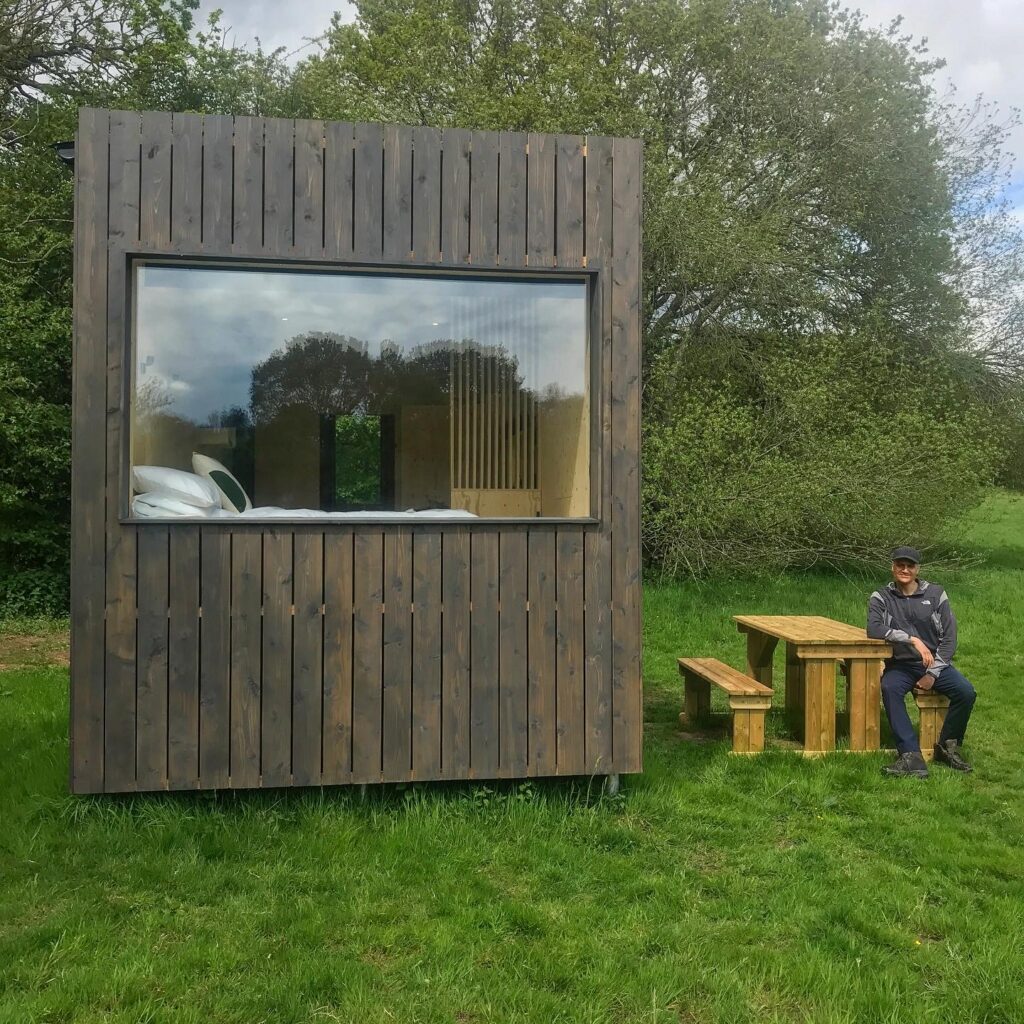
When was the last time you went three full days without looking at your phone?
I did it this week – and it was genuinely amazing.
Three nights in an Unplugged Cabin in a lush corner of the English countryside. In the evening, when the mellow light fell on the treetops, it was like stepping into a painting by Constable.
Upon arrival, and as instructed, I locked my iPhone in the supplied box. Though I’m not really a slave to the screen, I did expect to feel some withdrawal symptoms during the three days. You know, the occasional itch to scroll through Instagram or check WhatsApp.
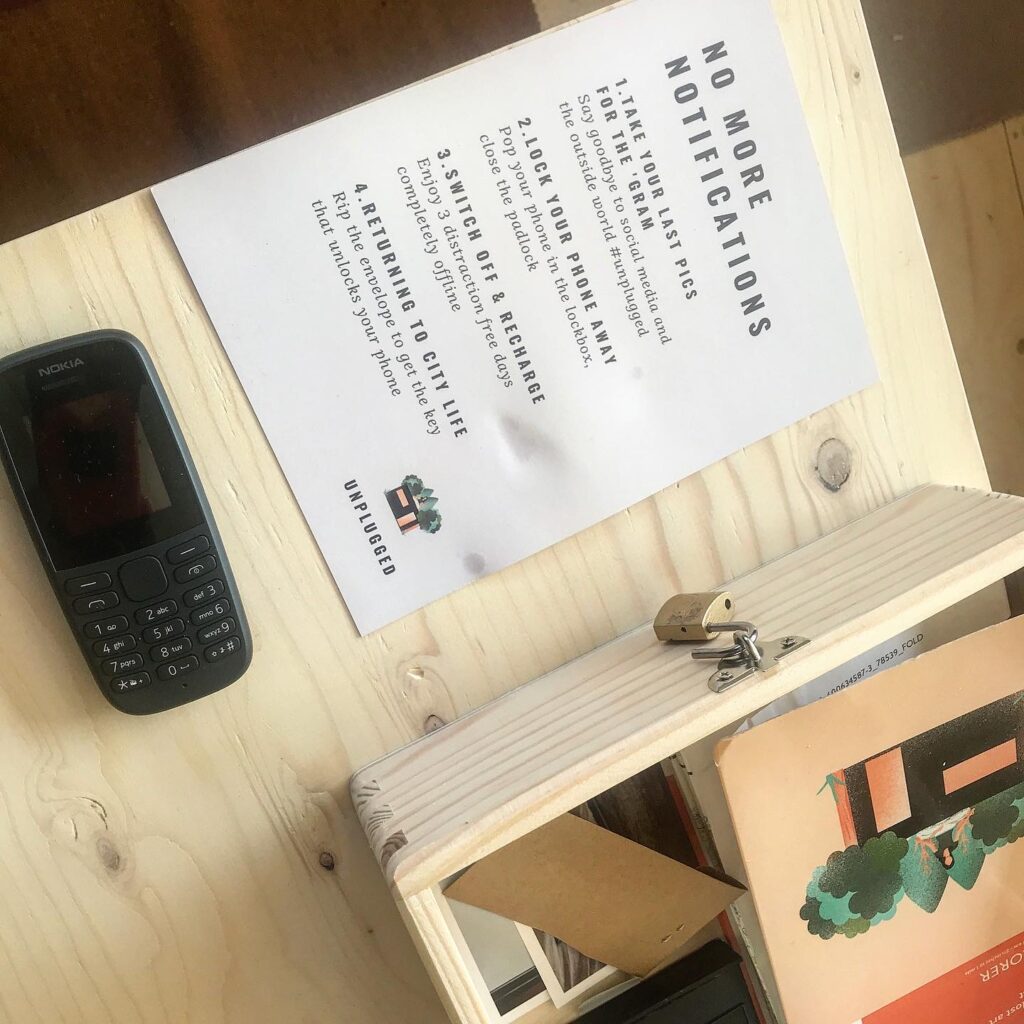
But I honestly felt none of that. No FOMO at all.
What I felt was free. From distraction. From the news cycle. From the duty to interact. From the temptation to record everything. From worrying about whether someone somewhere was having a better than I was.
What I gained was peace and presence. With no weapon of mass distraction in my pocket, I felt more alive to the moment.

Sure, there were a couple of times when, while standing before a glorious view, I missed not being able to take a photo. But even that came with a silver lining.
Unable to record the moment quickly, I savoured it slowly. I lingered and let my mind wander. I felt all five senses coming into play. I made my own memories.
What I particularly enjoyed was reclaiming those interstitial moments of the day when nothing much is happening. When you’re waiting in line, say, or stuck at a red light.
With a phone to hand, the natural impulse is to fill those in-between times by checking messages or glancing at social media.
With no phone, those moments turn into little gifts of calm. A time to pause, observe, breathe, feel, reflect, reset.
I enjoyed being phone-less so much that I didn’t switch mine back on even after retrieving it from the padlocked box. Instead, I went for another long hike and only fired it back up once I was all the way home.
How I use my phone will now change. I’ll start by leaving it at home more often. I will also experiment with those settings that limit access to social media.
So, if you hear from me a little less in future, it’s not you, it’s me!
What can you do to feel less oppressed by your phone?
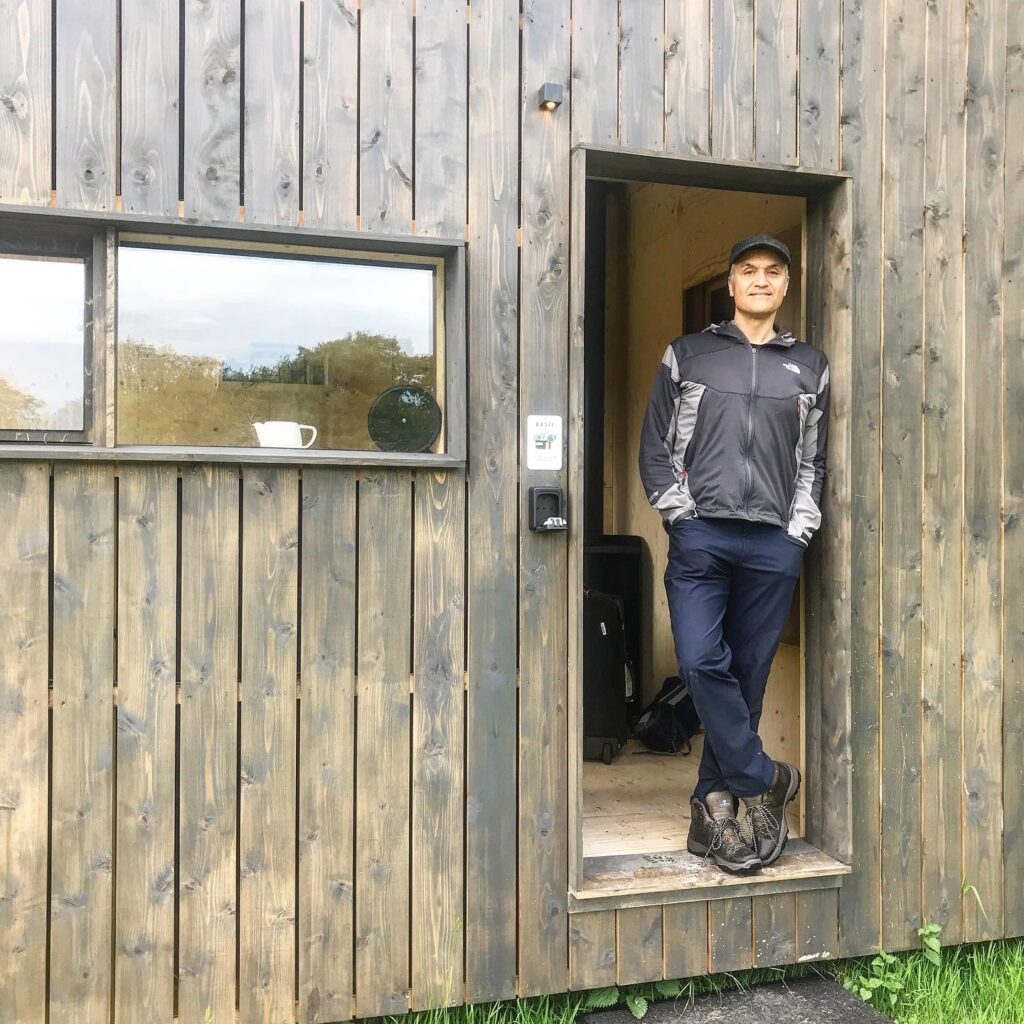
Keynotes in the time of Covid
If you’re looking for a speaker to help you thrive in these troubled times, drop me a line ….
“Online keynotes can be tough, but Carl’s story, anecdotes and personality held our audience of business owners on the other side of the world captive for a full 90-minutes, and they wanted more. A world-class keynote presenter with a message everybody in the world with a pulse needs to hear. Book Carl for your next online event, it’s a guaranteed win.” James Veigli, Founder of Broker Profits Vault (Melbourne, Australia)
“I could listen to Carl speak all day! Very dynamic, funny, insightful and engaging. I thought he and his subject matter was the perfect way to end the conference.” Delegate at the annual conference of the Canadian Society of Safety Engineers (Montreal, Canada)
“Carl put on an amazing show! The whole audience was energised by his insightful and fun presentation. He was fantastic! We got amazing comments! A huge, huge thanks!” Beatrice Imbert-Forgeot, Richmond Group (Paris, France)
“Carl was captivating! He has a blend of polished eloquence and sophistication coupled with vibrant and a rare contagious energy that attendees absolutely fell in love with. Carl captured everyone’s attention from the very first second and had us smiling, laughing and nodding in agreement throughout. His appeal is universal and he was the audience favourite!” Sam Makhoul, Founder of Higher Branch Success Academy (Sydney, Australia)
“Getting city lawyers to slow down is impossible surely? Carl was faced with this task at our latest Life With Law event, and succeeded in every way. Carl captured the whole room’s attention with his thoughts on The Slow Movement. His talk resonated with everyone in slightly different ways, but we all left wanting to find our inner tortoise.” Amy Greenham, Lawyers on Demand (London, UK)
“How can we ever thank you for an informative and inspiring two days at Hewitt? I wish you could see my inbox right now (actually, you don’t want to see it, because it’s the opposite of slow). It’s full of thank you messages from parents thanking me and saying that they are going to buy your books and continue thinking and reading about slow parenting. Thank you, thank you, thank you.” Tara Kinsey, Head of School, The Hewitt School (New York City, USA)
“Carl’s presentation was a hit, delivering a fresh perspective to our latest conference that tackled speed in business. Carl’s insights and passion managed to inspire so many C-level executives that going slower at times pays more and as a result it helps us improve and possibly find ways of doing things smarter and faster. I highly recommend Carl as he is a very good public speaker and able to adapt his ‘Slow Movement’ to so many different contexts.” Morgan Parnis, CEO Business Leaders Malta (Valletta, Malta)
“I was super excited when I was listening to Carl speaking in front of our audience — imagine a hall with 400 people and they are all laughing, nodding their heads, smiling – when you can really see that they are enjoying themselves and listening to the speaker on stage. That is what we had with Carl and I can assure you that he will take your advice into consideration and make the best event possible. Really recommend him as a speaker!” Nika Močnik, CEO Eventnika (Ljubjlana, Slovenia)
In Praise of Shyness
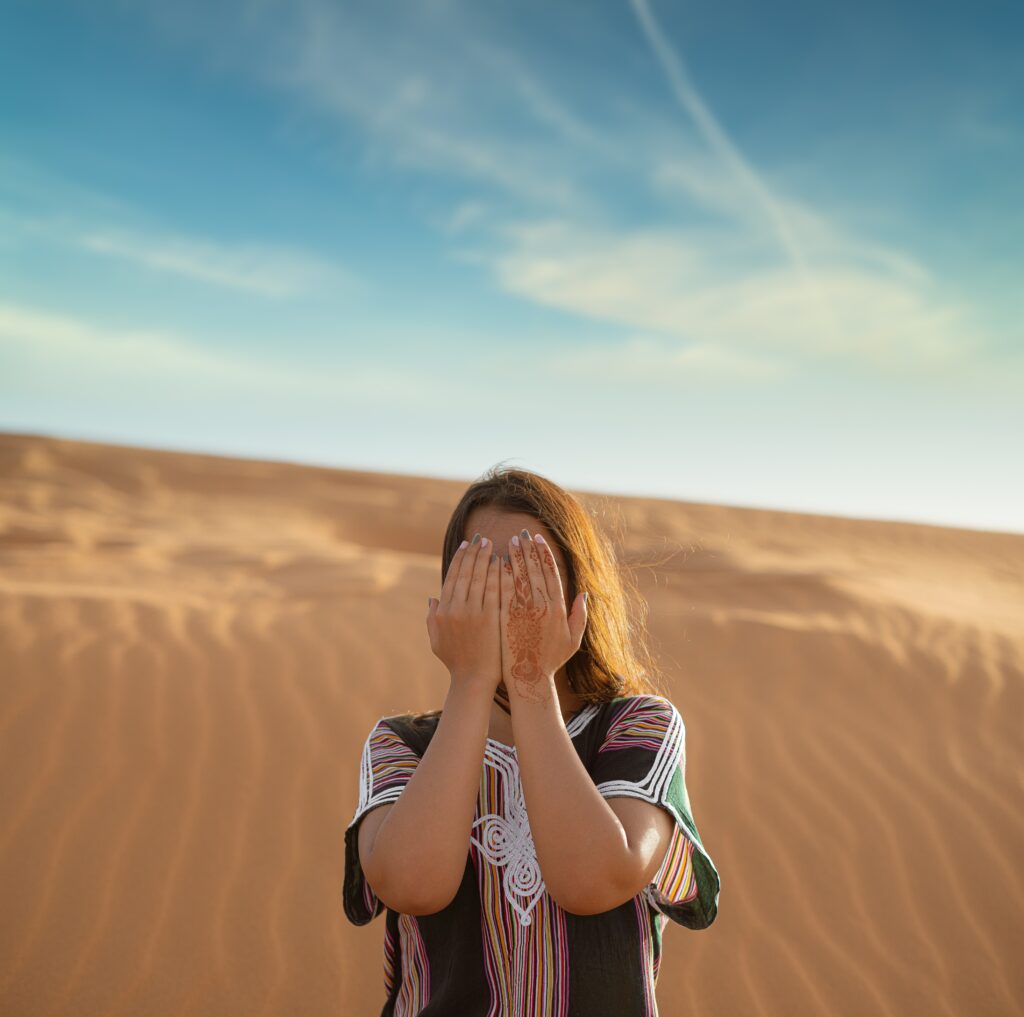
The other day I stumbled across the Facebook page of someone I knew back in high school. It stopped me in my tracks for two reasons.
The first was that Mike had put on 50 pounds and grown a beard. The second was that a guy once known for his shyness now seemed eager to air his dirty laundry in public.
His latest Facebook post said simply: “Just finished trimming my nose hair.”
This grooming update got me thinking. What ever happened to modesty? What happened to keeping our personal thoughts, rituals and affairs to ourselves? If video killed the radio star, what does the information technology revolution mean for things like privacy, reticence and shyness?
In this wired, always-on world, we’re all under pressure to be bold, open and fast: to respond instantly to messages, to share our secrets on social media, to talk on smartphones within earshot of strangers.
You could argue that this is progress, that we should welcome this brave new world of full disclosure and leaning in.
I disagree.
I’m all for openness, but our tech-driven, let-it-all-hang-out culture has gone too far. Don’t get me wrong. I’m not a Luddite. I love technology. I love the way it shrinks the world, brings people together and supplies a bottomless reservoir of information on tap.
But the information revolution is also causing collateral damage. We are losing the ability to switch off, to think deeply about things, to give ourselves over completely to the moment.
The assumption that every detail of our private lives is worth broadcasting to a global audience is fuelling a new kind of narcissism. Even the mystery that is often the lifeblood of human relationships is under threat.
Just look at dating.
Today, the first thing you do after meeting someone you fancy is hop on your phone and start googling. Before you even reach the first dinner à deux, you already know the other person’s job history, hobbies, romantic track-record, politics, taste in travel, friends.
Maybe you even know how they cope with nasal hair.
Shyness is an antidote to all of the above. It’s about holding back, weighing up the options before taking action. It’s about listening to other people instead of blowing your own trumpet. It’s about preserving human dignity by keeping some things quiet.
It seems to me that what we need now is to strike a balance between the thrilling possibilities of information technology and the basic human need for privacy. We need to bring a little bit of shyness back to the party.
How do we do that? Well, perhaps we could start by turning Facebook into a nose-hair-free zone.
London Aging 2.0 has launched a Book Club – and BOLDER: MAKING THE MOST OF OUR LONGER LIVES is the inaugural choice!
If you’d like to take part, sign up here. I will be doing a Zoom Q&A with readers on June 29th.
See you there!
The Slow Newsletter is FINALLY here!
Today, after years of hemming and hawing, I am launching a SLOW NEWSLETTER.
It’ll be weekly. And streamlined.
Just one piece of inspiring news from the world of Slow. One tip for a better life. One piece of culture (book, film, article, exhibition, podcast, etc) that blew me away. Plus, updates on any cool stuff I’m working on.
First edition out next week.
Spread the word and sign up here!